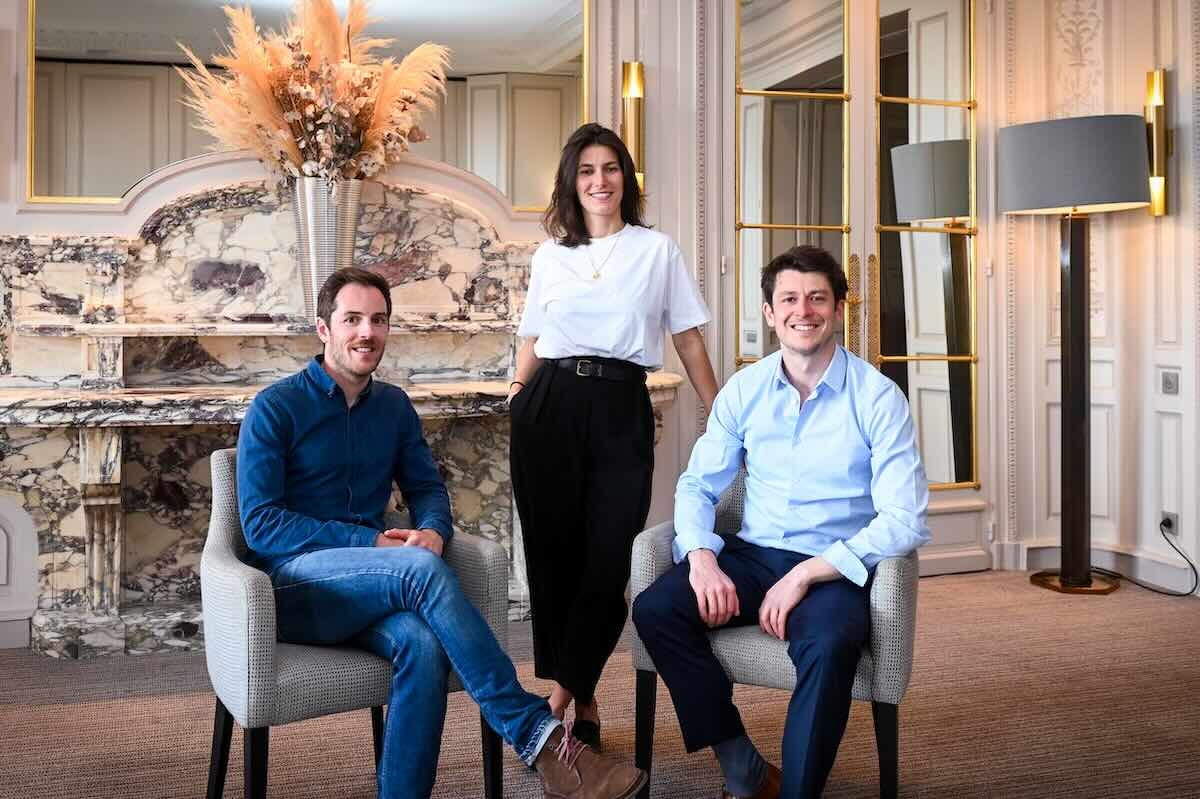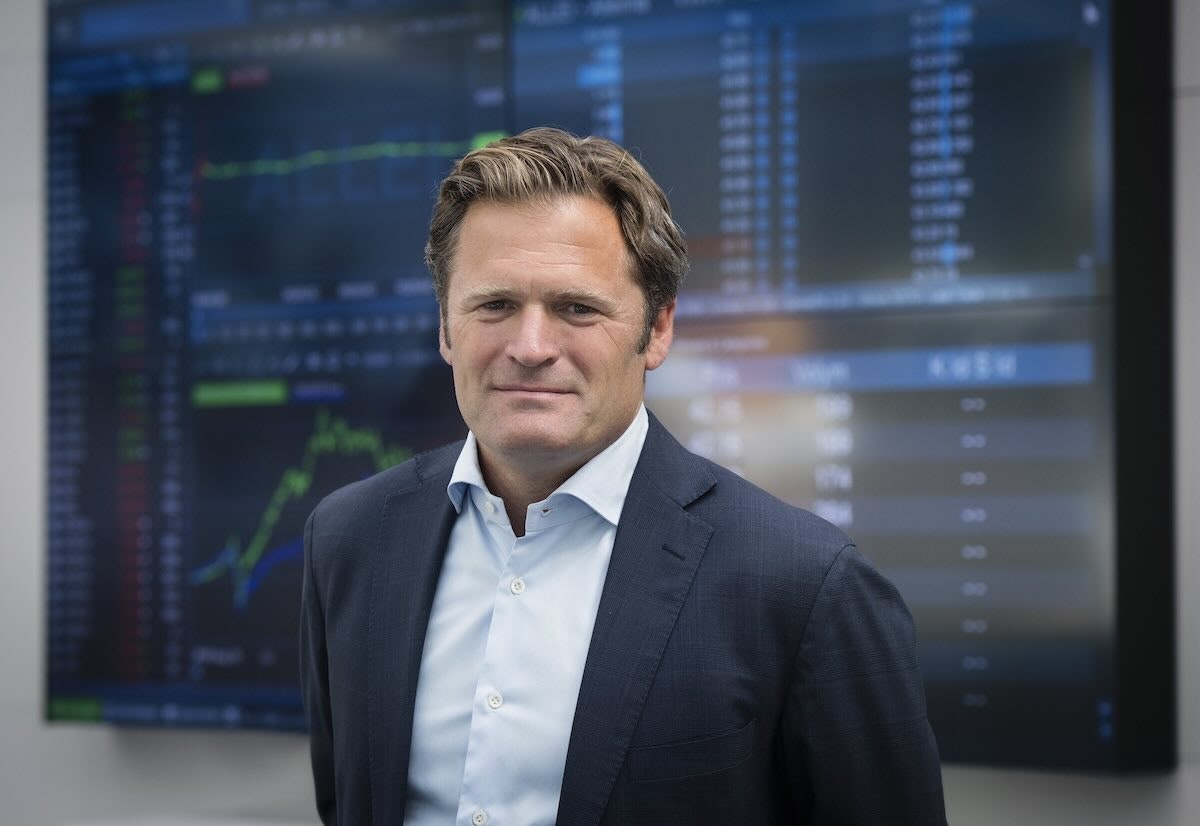After a brief Covid-induced lull, the global IPO market rose from the ashes in 2021 to become the strongest year for public listings since 2000. And Europe led the way globally with the biggest uptick in listing activity.
There were, of course, some highs and some lows.
Romanian robotic automation giant UiPath shone on its Nasdaq debut in April, becoming one of European’s most valuable startups at a $35.8bn valuation. By contrast, Deliveroo’s London debut in March saw the food delivery giant lose more than a quarter of its value on its first day of trading, leading one of its bankers to name it “the worst IPO in London’s history”.
Who are the European startups that might be ready to go public in the year to come?
While some of these companies have openly expressed their intent to list, other predictions are speculative. Our methodology is noted at the end. Think we should add someone on there? Let us know in the comments below.

Klarna
Founded: 2005
Sector: Fintech (payments)
HQ: Stockholm
Revenue: £1bn (2020); 31% growth on 2019
IPO hints: One of the most talked-about IPO prospects right now is Klarna, Europe’s most valuable startup at $46bn. The Swedish buy now, pay later firm had a busy 2021 — peppered with seven acquisitions, including Hero and Pricerunner. With the latter, its chief product officer pitched the company as “a viable and competitive alternative for retail partners vs Amazon, Google and Facebook”.
As we went into last year, CEO Sebastian Siemiatkowski told the FT an IPO should happen in the next “one or two years”, and in March, he appointed former HSBC executive Niclas Neglén as CFO, likely to kickstart the IPO process.
A potential autumn IPO for Klarna, after an expected handful more acquisitions and perhaps another raise, featured among Sifted’s startup predictions for 2022. Klarna declined to comment.
Who stands to get rich? Although Klarna doesn’t publicly disclose its cap tables, Sifted has previously reported on its early investors — including Sequoia, AB Oresund and Atomico — who can expect to cash out from an IPO. Most recently, SoftBank’s Vision Fund 2, Adit Ventures, Honeycomb Asset Management, Permira and Northzone have backed Klarna, according to the company.
WeTransfer
Founded: 2009
Sector: Cloud-based technology
HQ: Amsterdam
Revenue: £84m+ expected in 2021, 31% compound annual growth rate from 2018
IPO hints: Two weeks into the new year, the owner of WeTransfer announced that the cloud-based file transfer service is seeking an IPO on its home country’s Euronext stock exchange — date TBC.
WeTransfer, which has 87m monthly users across 190 countries, seems confident it has healthy enough financials for the public market. The company said it recorded an adjusted ebitda (earnings before interest, taxes, depreciation and amortisation) of £18m on revenue of £60m for the first nine months of fiscal 2021, and CEO Gordon Willoughby this week said: “We’ve delivered a revenue CAGR [compound annual growth rate] of 31% from 2018 to 2020, and expect revenue for 2021 to exceed €100m.”
The company said its IPO will include both a primary sale of €160m in new shares and a secondary offering of existing shares by current owners and managers.
Who stands to get rich? Known backers Highland Europe Technology and HPE Institutional Fund II are both set to benefit when they sell their existing shares, the company said this week.

MessageBird
Founded: 2011
Sector: Telecommunications
HQ: Amsterdam
Revenue: $300m+ in 2020, est. 50% year-on-year growth
IPO hints: Back in 2020, founder and CEO Robert Vis said that MessageBird’s CFO had the directive to IPO in 12 months — which didn’t happen. He then claimed in March last year that the firm would be “ready in H1 this year” — which again didn’t happen.
Instead, MessageBird raised $1bn in its Series C funding round a month later, sending the company’s valuation to $3.8bn. This was accompanied by a triple whammy acquisition spree of SparkPost, 24sessions and Hull, bringing the total number of companies it’s nabbed to eight and making it one of Europe’s most acquisitive private companies.
Vis said sales passed $300m in 2020, implying year-on-year growth of nearly 50%. According to Dutch public filings, MessageBird made a loss of $10.6m in 2019, and Vis said the company made a small loss in 2020.
Who stands to get rich? Accel, Atomico, Tiger Global, Y Combinator and Spark Capital were some of the company’s backers at its last raise and could be in for cash if Vis finally goes ahead with the listing.
Checkout.com
Founded: 2012
Sector: Fintech (payments)
HQ: London
Revenue: 2020 European revenues stood at $253m — 73% up on 2019. Read Sifted’s latest back-of-the-envelope estimates here.
IPO hints: Checkout.com’s European profit in 2020 was $86m — making it one of the few European fintechs in the black. A healthy place to be for an IPO, but founder Guillaume Pousaz has had his eyes on more cash rather than an exit. Checkout.com started the year by announcing it raised another $1bn in funds, making it Europe’s second most valuable startup at $40bn, just behind Klarna.
And it’s a tactic that seems to suit for the time being. Blossom Capital's Ophelia Brown, who's invested in every one of Checkout.com's rounds since Series A, told Sifted: “The striking thing with Checkout is that every round proved that the market opportunity just gets bigger and bigger. They started processing payments for merchants globally, then fintechs, then crypto exchanges, then marketplace model.”
Pousaz has previously said that the US is Checkout.com’s most likely IPO destination, but recently told the FT: “We know that we’re going to have a long life in the public markets, but there is no rush to go.”
Who stands to get rich? Sifted recently reported that despite its London HQ, Checkout.com only has two European investors on its cap table: Blossom Capital and the University of Oxford’s Endowment Fund. It’s otherwise dominated by US names, including Tiger Global and Insight Partners.
Cabify
Founded: 2011
Sector: Mobility
HQ: Spain
Revenue: $516m (2021 expected)
IPO hints: One half of Spain’s two-strong unicorn stable, the ridesharing company gave its strongest hint it could be moving towards an IPO when it appointed a new CFO in April last year. Antonio España already has one IPO under his belt: he steered security company Prosegur to listing one of its units in 2017.
Meanwhile, Cabify said in a statement last month that it expected to reach profitability by the end of the year. The company hasn’t raised since 2019, which means it will likely be looking for fresh funding soon and could tap public markets.
But a company source told Sifted it was only “one option of many” that was being considered. “It is not the only way to achieve our goals,” they said.
Who stands to get rich? Japanese commerce and retail giant Rakuten owns 40% of the company’s shares.
BlaBlaCar
Founded: 2006
Sector: Mobility
HQ: Paris
Revenue: After reporting a 71% increase in revenues in 2019, growth dipped by 30% in 2020.
IPO hints: BlaBlaCar raised $115m in its latest round in April last year, bringing its valuation to $2bn. At the time, the carpooling and transportation marketplace told Sifted that the next step could likely be a public listing.
“In the second half of 2022 we’ll be profitable and the logical next step of a company like BlaBlaCar would be to IPO,” CEO and founder Nicolas Brusson said.
“The new fundraising is fundamentally structured as a ‘pre-IPO convertible’ that would convert into either an IPO or a large private placement but the latter is less likely given the amount of large cash we have now,” he added.
Who stands to get rich? Investors including VNV Global, Otiva J/F AB fund and FMZ Ventures took part in the company’s latest round, and early backers including Index Ventures could also be up for a payday in the event of an IPO.

Starling Bank
Founded: 2014
Sector: Fintech (neobank)
HQ: London
Revenue: Grew 600% to £97.6m in the 16 months to March 2021, up from £14m in its 2019 results.
IPO hints: Starling became the first challenger bank to turn a profit back in October 2020, and in its latest annual report in July the company said it expects to post a fully profitable 12-month period in March 2022.
Its current projected annualised revenue for 2021 is £170m. That could mean 2020 was its last set of loss-making financial results for the foreseeable future.
Founder and CEO Anne Boden said at the time that she could float the bank by the end of 2022 or in early 2023, but was not going to rush into a flotation.
“We’re going to do it in our time,” Boden said. “We’re not going to be forced to do it because it’s fashionable at the moment.
“We want the right number when we float, and we’re on very solid footing."
Who stands to get rich? The UK’s Jupiter Asset Management has backed Starling since its Series C, and Goldman Sachs, Fidelity, Qatar Investment Authority, and Millennium Management were among the investors in its latest raise last year.
Britishvolt
Founded: 2019
Sector: Battery technology
HQ: Blyth, Northumberland
Revenue: Not disclosed
IPO hints: Britishvolt is creating the UK’s first gigafactory to manufacture batteries for electric vehicles and energy storage, and has raised £92m to date. It’s also the eighth-fastest company to reach the unicorn milestone in Europe, according to Handelsblatt.
A spokesman said the company is currently “aiming to list” and “analysing all options”, with London as the preferred listing location.
“The rationale for listing is to be transparent and adhere to the strict ESG standards we have baked in from the start,” they added.
Who stands to get rich? Britishvolt’s investors so far include Cathexis, Carbon Transition ASA, NG Bailey, Raghunath Subramanian and Glencore.
Zopa
Founded: 2005
Sector: Fintech (neobank)
HQ: London
Revenue: n/a
IPO hints: Zopa raised $300m in a funding round in October last year, as CEO Jaidev Janardana steers the company away from pure peer-to-peer lending to providing increased banking services.
He’s also made very clear his intentions to list, telling Sifted: “The company will be ready for an IPO as early as Q4 2022 by which time we would have shown a consistent track record of profitability. The size of our recent fundraise means we can be more flexible in our timing for an IPO.”
Janardana hinted that London is the preferred listing location, as local investors “play to Zopa’s strengths”.
Who stands to get rich? Zopa’s latest funding round was led by Japan’s SoftBank through its Vision Fund 2. Augmentum, Northzone, Chimera and SilverStripe are also among its latest backers.
Onfido
Founded: 2010
Sector: Saas
HQ: London
Revenue: Undisclosed, but an Onfido spokesperson confirmed its revenues increased 93% in the first 10 months of 2021, and the company has seen 100% growth in annually recurring revenue (ARR).
IPO hints: Onfido did not provide a specific comment on IPO plans, but last year the digital identity startup was reported to be considering a stateside IPO, due to rapid business growth in North America. It’s certainly been prepping the company for such a move — and has begun swapping British accounting standards for American.
A new US bias in the startup’s leadership team began to emerge when its cofounder Husayn Kassai stepped down in November 2020 and was replaced as CEO by US tech businessman Mike Tuchen.
Then in October last year the company announced the “strategic hire” of US-based Faisal Chughtai as CFO, formerly CFO of Inxeption and an executive director at JPMorgan Chase.
Who stands to get rich? Talis Capital, M12, Augmentum, Salesforce Ventures and TPG Growth were all among the investors at Onfido’s last fundraising round.
Is 2022 the year to IPO?
Dry powder accumulated by investors during the pandemic saw the amount of capital pumped into $250m+ rounds in Europe grow by about 900% in the first nine months of 2021 to $40.1bn, according to Atomico’s State of European Tech report.
And payments company Checkout.com has already carried this trend into 2022, having recently announced it's raised a $1bn round, bringing its valuation to $40bn.
“There’s still a tonne of dry powder hanging around that represents a huge opportunity for private companies to tap into, before trying an IPO with its much more demanding constraints,” says Elina Berrebi, founding partner at Revaia (formerly Gaia Capital).
For this reason, Berrebi believes 2022 won’t be the year we see a lot of startups choose the path to IPO.
“And for all of those that raised a lot of cash in 2021, they will have more cash than ever and the time to spend it wisely, create value from it, and for most companies, grow into their valuation,” she says.
Nonetheless, provided a startup is ready, the prospect of an IPO hasn’t completely lost its appeal.
“It's a massive branding event. People underestimate the recognition it gets you with customers, because of the governance that comes with it,” says Haakon Overli, cofounder and general partner at Dawn Capital.
“You can raise money quickly — and you’ve ‘grown up’ in becoming a public company.”
Methodology
Sifted relied on interviews with companies, VCs and press cuttings to craft our shortlist of likely IPOs, as well as using the following benchmarks:
- Over $50m in annual recurring revenue (ARR), and growing at an annual rate of 30-50%
- Large scale and expensive operations (often having attained unicorn status in 2018 or before)
- Making changes around CEO, chairman and CFO (ideally ones with exit experience)
- Raised £100m+ across a maximum of five fundraising rounds
- Clear path to profitability
We also limited it to companies listing on main exchanges rather than alternative markets, where smaller startups can sell their stock.
Amy O’Brien is a reporter at Sifted. She tweets from @Amy_EOBrien



